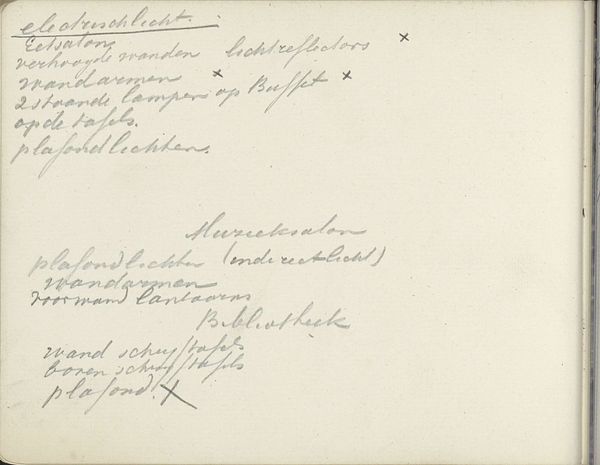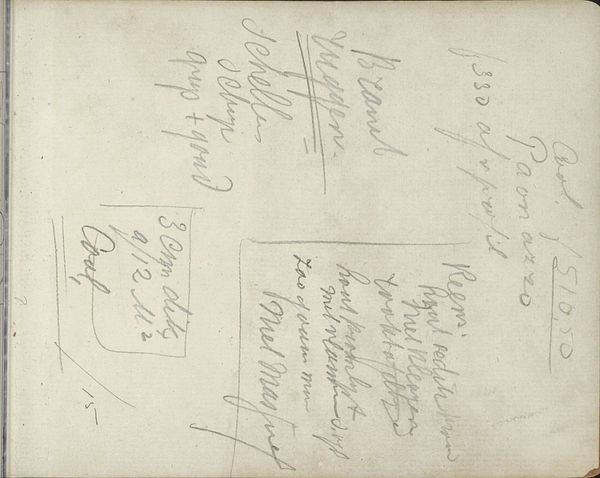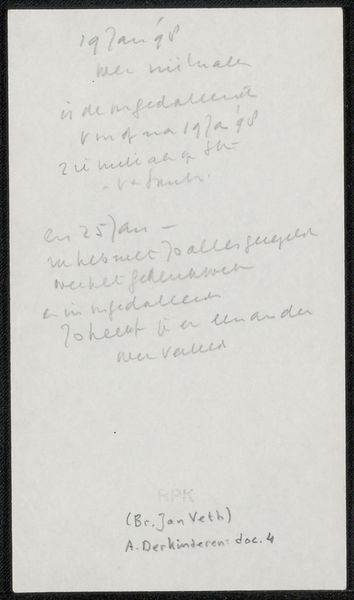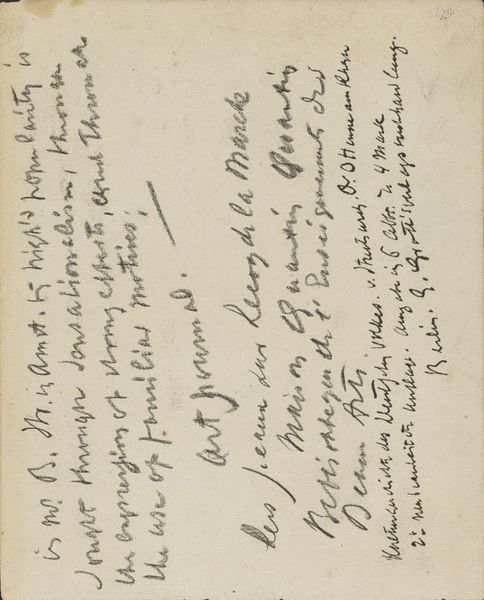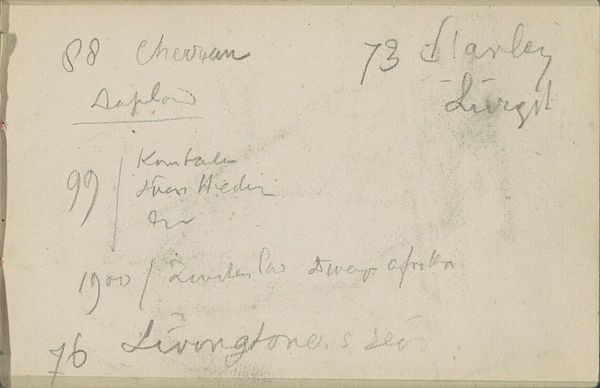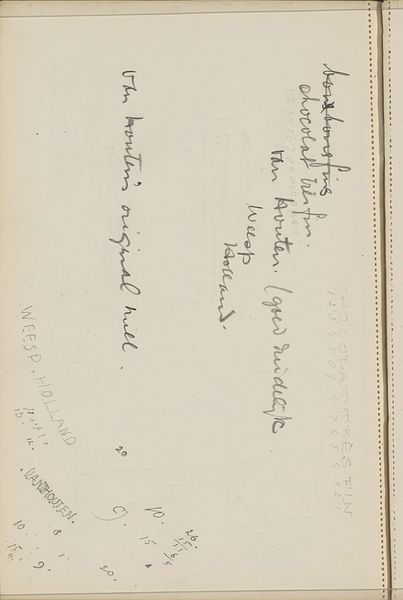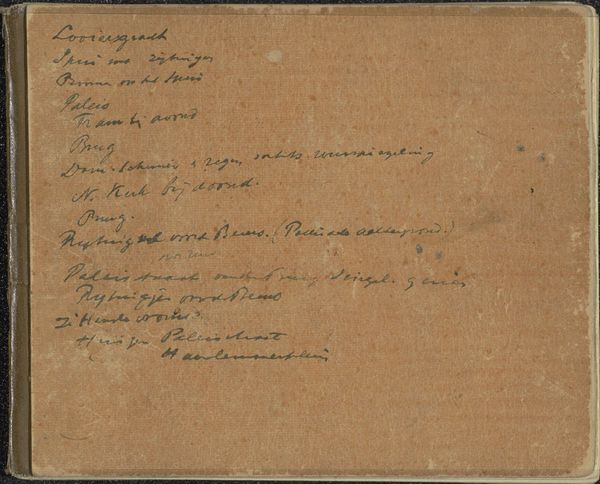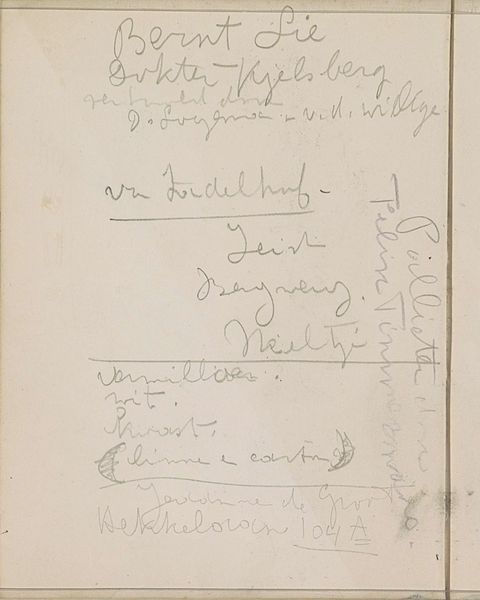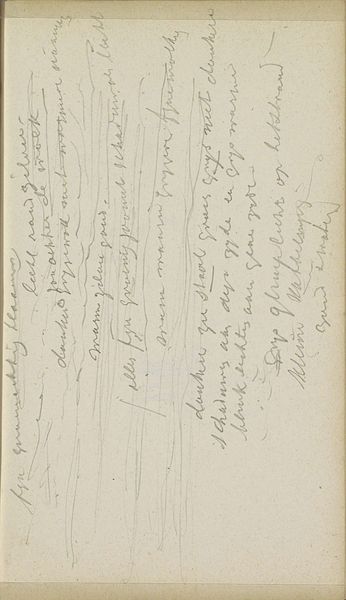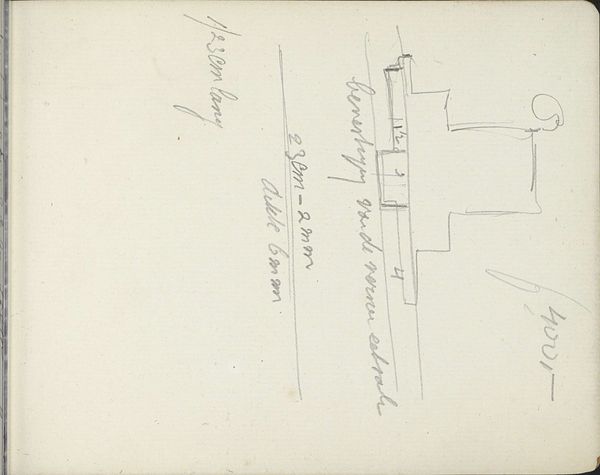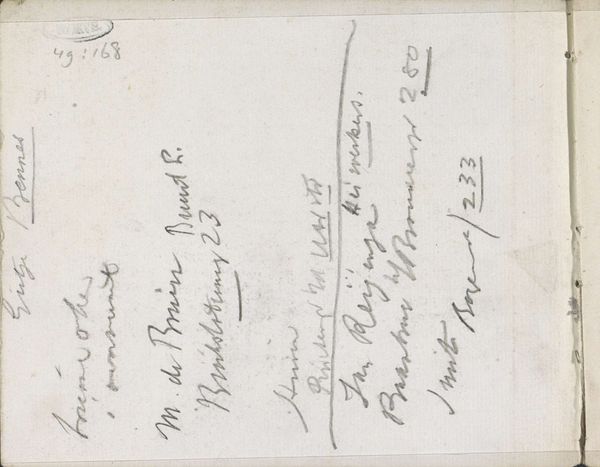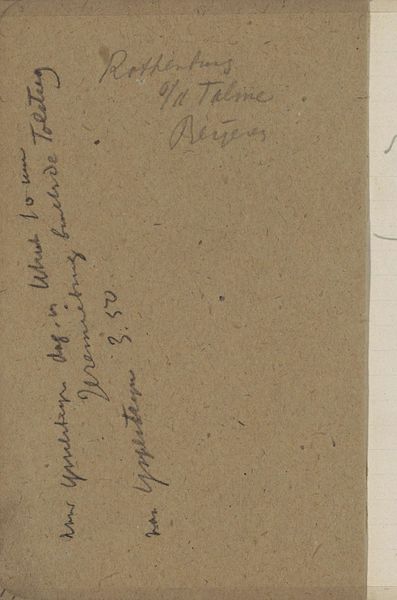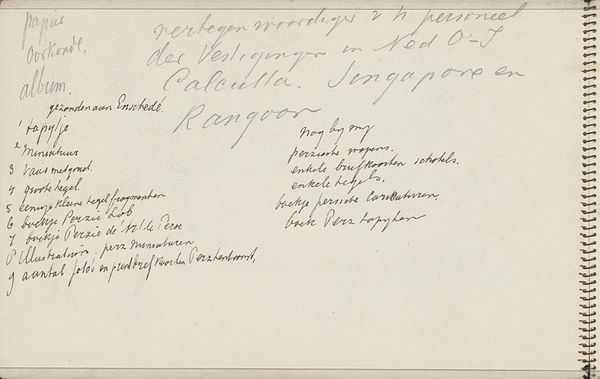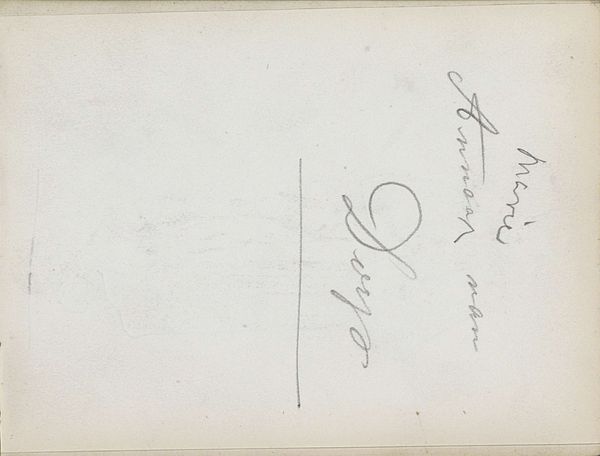
drawing, paper, pencil, graphite
#
drawing
#
paper
#
geometric
#
pencil
#
graphite
#
modernism
Copyright: Rijks Museum: Open Domain
Editor: This is "Notes on Electric Light" by Carel Adolph Lion Cachet, around 1928, a graphite and pencil drawing on paper at the Rijksmuseum. It looks like handwritten notes about different lighting schemes in rooms, almost like a shopping list, and very ordinary, which makes me curious. What is significant about it? Curator: I find it striking because it foregrounds the *process* of design, rather than a finished object. Consider the materiality here – graphite, paper, simple tools reflecting Cachet’s engagement with modern modes of production and consumption. Editor: Modes of consumption? How does a sketch reveal consumption habits? Curator: It’s less about consumption in the sense of purchasing goods, and more about the consumption of electricity, and therefore resources, to produce illumination. Cachet’s notations represent a shift in societal reliance on electrical power, moving beyond candles and gas. This has consequences for the labour required, materials extracted and even architectural forms dictated by reliance on this 'modern' light. What do you make of its listing quality? Editor: Well, I did think it was odd how plainly it was written. But thinking about what you said makes the "list" a catalog of potential, and available, sources. Curator: Precisely. In a way, this pushes us to reflect on who benefitted and who might have suffered from its use, as with all technological advancements and design choices, a subtle critique is inherent. Editor: I never thought a seemingly straightforward sketch about lighting could spark so many reflections. It makes you reconsider the everyday objects around us. Curator: Absolutely. It’s in these commonplace reflections that we truly begin to grapple with the art and material culture we engage with daily.
Comments
No comments
Be the first to comment and join the conversation on the ultimate creative platform.
